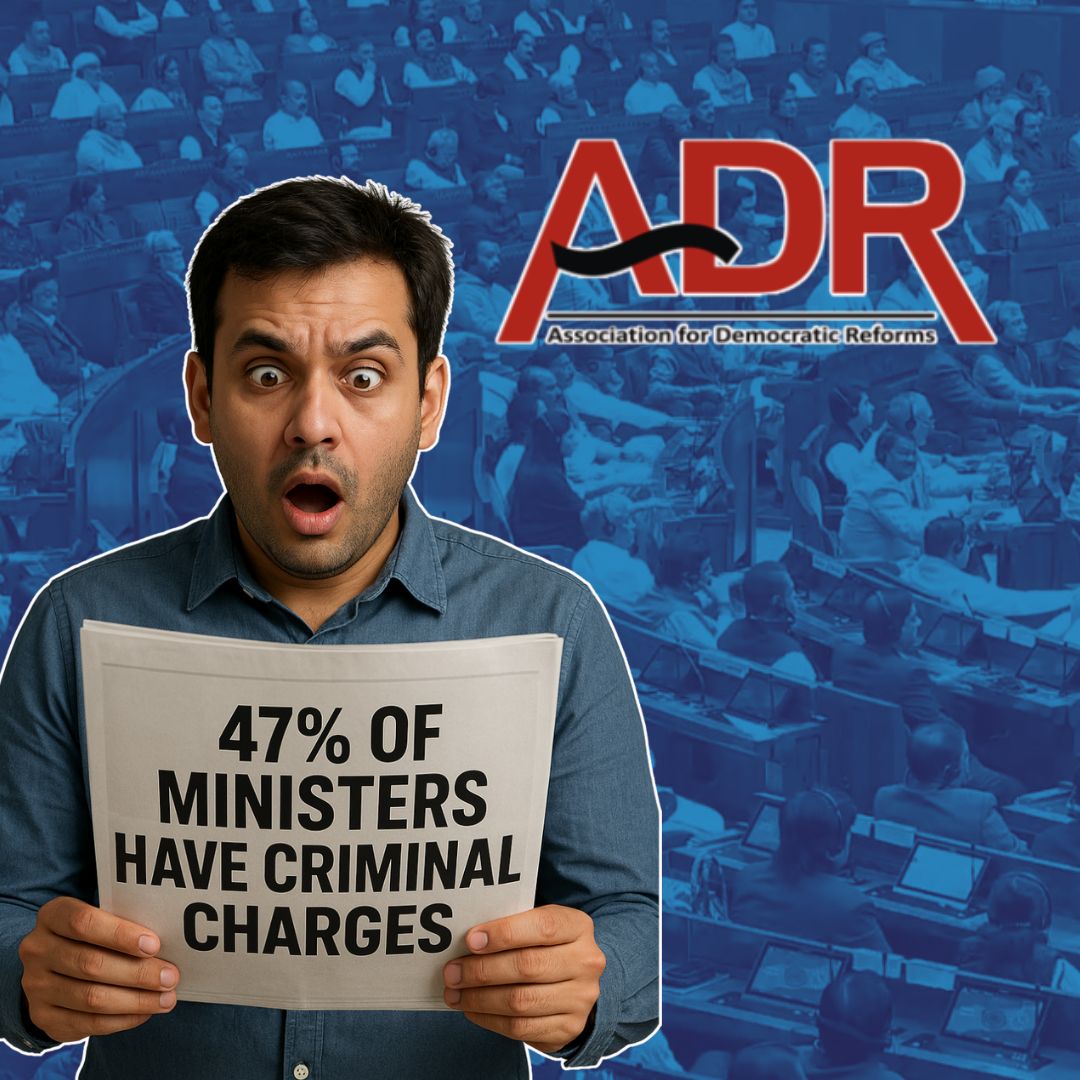Nearly half of India’s ministers face criminal charges, including violent crimes, prompting urgent calls and new legislation for political accountability and cleaner governance

Nearly 47 per cent of ministers across India’s states, Union Territories, and the Union Council of Ministers have declared criminal cases against themselves, including serious accusations such as murder, kidnapping, and crimes against women, reveals a report by the Association for Democratic Reforms (ADR) released in early September 2025. Among these, 174 ministers are accused of grave offences.
This report arrives just days after the Centre introduced three bills proposing the removal of prime ministers, chief ministers, and ministers arrested or detained continuously for 30 days on such serious charges. The legislative move has ignited debate around governance reforms and the risk of political misuse.
Alarming Statistics Highlight Widespread Criminal Allegations
The ADR analysed self-sworn affidavits submitted by 643 ministers from 27 state assemblies, three Union Territories, and the Union Council of Ministers. The report found that 302 ministers, nearly half, have declared criminal cases against themselves. Of these, 174 have been charged with serious crimes, including murder, kidnapping, attempt to murder, and violence against women.
Party-wise, the Bharatiya Janata Party (BJP) has 336 ministers, 136 (40%) of whom declared criminal cases, with 88 facing serious charges. The Telugu Desam Party (TDP) stands out with an overwhelming 96% of its ministers declaring cases, 57% facing serious accusations.
Similarly high figures are reported from the Congress (74%), Dravida Munnetra Kazhagam (87%), and Aam Aadmi Party (69%). Officials from ADR emphasise, “Voters deserve transparency and the right to make informed choices about their leaders.”
The report also highlights a sharp contrast in criminal case prevalence among states, with Haryana, Jammu & Kashmir, Nagaland, and Uttarakhand reporting no ministers with criminal cases. This disparity underlines the varied political climates and governance standards across India’s regions.
Government’s Legislative Initiative Faces Political Pushback
In response to growing public concern over the criminal backgrounds of elected officials, the Centre introduced three bills in Parliament seeking to disqualify ministers arrested or detained for 30 consecutive days on serious criminal charges punishable by five years or more.
The bills, tabled in the Lok Sabha on 20 August 2025 amid protests and sloganeering by opposition parties, have been referred to a yet-to-be-formed Joint Parliamentary Committee for further scrutiny. Supporters argue these laws will deter criminal elements from entering politics and restore public trust, while critics warn of potential abuse and political vendettas.
Currently, 11 state assemblies, including Andhra Pradesh, Tamil Nadu, Maharashtra, and Karnataka, report over 60% of their ministers facing criminal cases, raising urgent questions about the ethical foundations of political leadership across India.
The Logical Indian’s Perspective
The widespread prevalence of criminal charges among political ministers presents a profound challenge to India’s democratic values. While the need for reform is undeniable, such efforts must carefully balance swift justice with the protection of due process and avoid becoming instruments of political persecution.
At The Logical Indian, we uphold the values of empathy, dialogue, and transparency as essential for fostering genuine political accountability and harmony. Strengthening democratic institutions requires not only rooting out corruption but also promoting fairness and coexistence.

